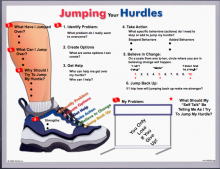The 'Why Try?' programme is a strength-based approach to helping young people overcome their challenges and improve outcomes in the areas of truancy, behaviour, and academics. It is based on Solution Focused Brief Therapy, Social and Emotional Intelligence and Multi-Sensory Learning principles. The programme aims to improve student retention, academic performance and school climate.
The 'Why Try?' programme teaches students critical social and emotional skills required for success in school and life after school. The programme also provides the students with strategies and tools to help change patterns of failure and indifference. It has proven to be highly effective at impacting negative student behaviour.
Important life skills taught through the programme include the following:
- Basic problem solving
- Anger management
- Dealing with peer pressure
- Living by a safe society’s laws
- Building a support system
- Visualising future goals
In 2011 the NBSS introduced the Why Try? programme to 42 post primary schools nationally. Training on the Why Try? curriculum, which teaches social and emotional skills using a practical multi-sensory approach, was provided to each teacher running the programme. The hands-on student activities in Why Try? are designed to teach social and emotional principles to young people in a way they can understand and remember. This is achieved using a series of ten pictures (visual analogies). Each visual teaches a discrete principle, such as resisting peer-pressure, obeying laws and rules and that decisions have consequences. The visual components are then reinforced by music and physical activities. The major learning styles—visual, auditory, and body-kinesthetic—are all addressed through the programme.
The core goal of the Why Try? programme is to help students to answer the question 'Why try in life?' when they are feeling frustrated, confused or angry with life's pressures and challenges. Feedback from teachers and students to date on the success of the programme in Irish schools is matching the programme’s success rate in the US, Canada, the UK and Australia.



